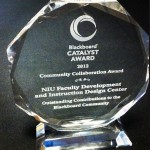
I’ve been blessed throughout my career to have worked for some great bosses. As I’ve lately been taking a closer look at leadership principles and best practices while urrently participating in a leadership institute, I stumbled across this great post by Michael Hyatt discussing the value of working for a “bad boss” in which he lists 20 random lessons learned from bad bosses:
- Everyone on the team matters. No one deserves to be treated poorly.
- Bosses create an emotional climate with their attitudes and behaviors.
- The higher up you are, the more people “read into” everything you say and do. Stuff gets amplified as it moves downstream.
- A word of encouragement can literally make someone’s week. Conversely, a harsh word can ruin it.
- Hire the right people then trust them to do their job.
- Don’t ever intentionally embarrass people in front of their boss, their peers, or their direct reports.
- Don’t attack people personally. Instead, focus on their performance.
- Get both sides of the story before you take action.
- Tell the truth; then you don’t have to remember what you said.
- Give people room to fail and don’t rub their noses in it when they do.
- Be quick to forgive and give the benefit of the doubt.
- Measure twice, cut once.
- Don’t ever ask your people to do something you are unwilling to do yourself.
- Respect other people’s time, especially those under you.
- Don’t believe all the nice things people say about you.
- Follow-through on your commitments, even when it is inconvenient or expensive.
- Don’t be ambitious to get promoted. Instead, focus on serving and doing a great job.
- Be responsive to everyone at every level. You never know who may be your next boss.
- Keep confidences. Make no exceptions.
- Do not complain about your boss to anyone. If you have to complain, then have the integrity to quit.
What other lessons might you add to the list?
Image courtesy ©iStockphoto.com/mediaphotos








